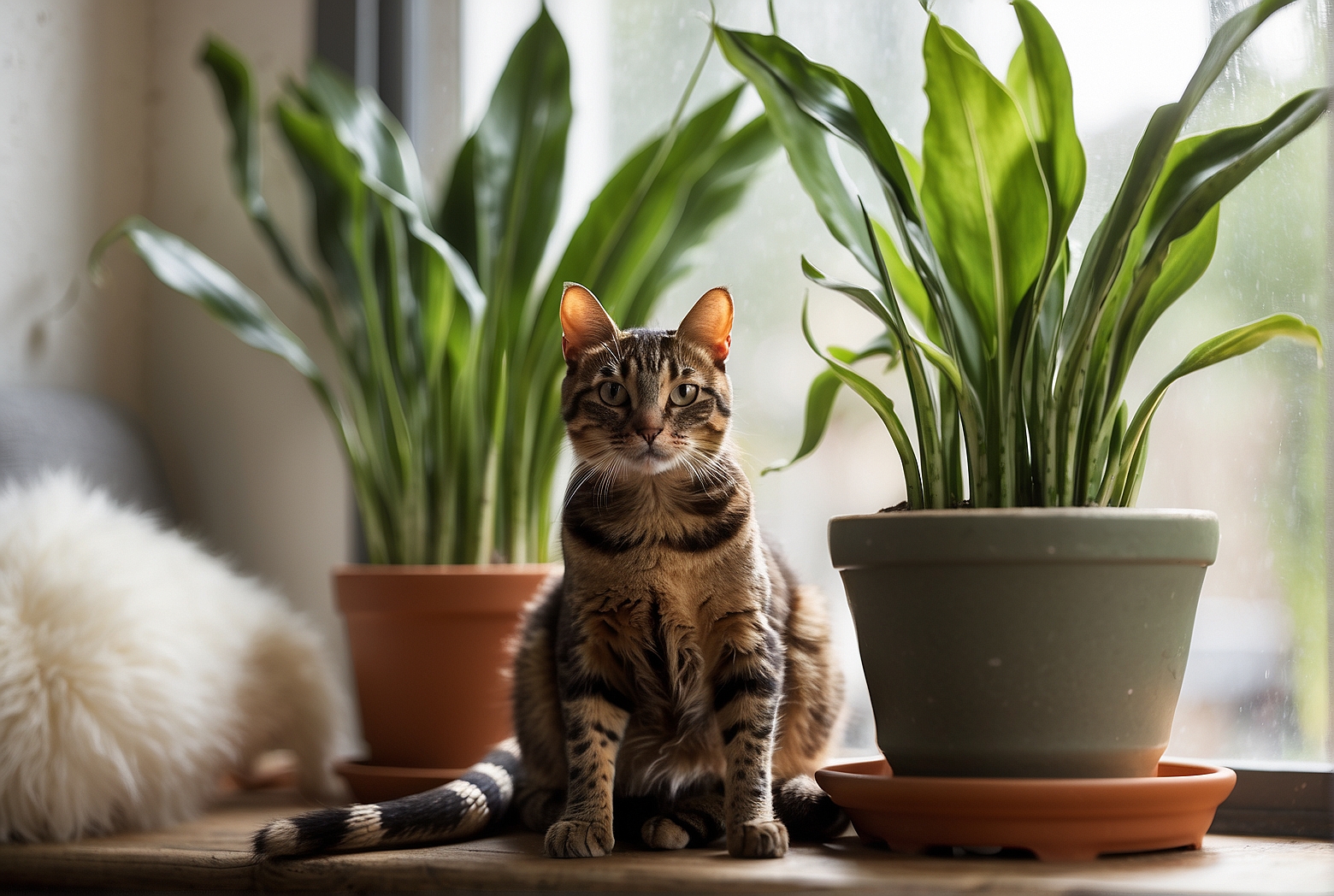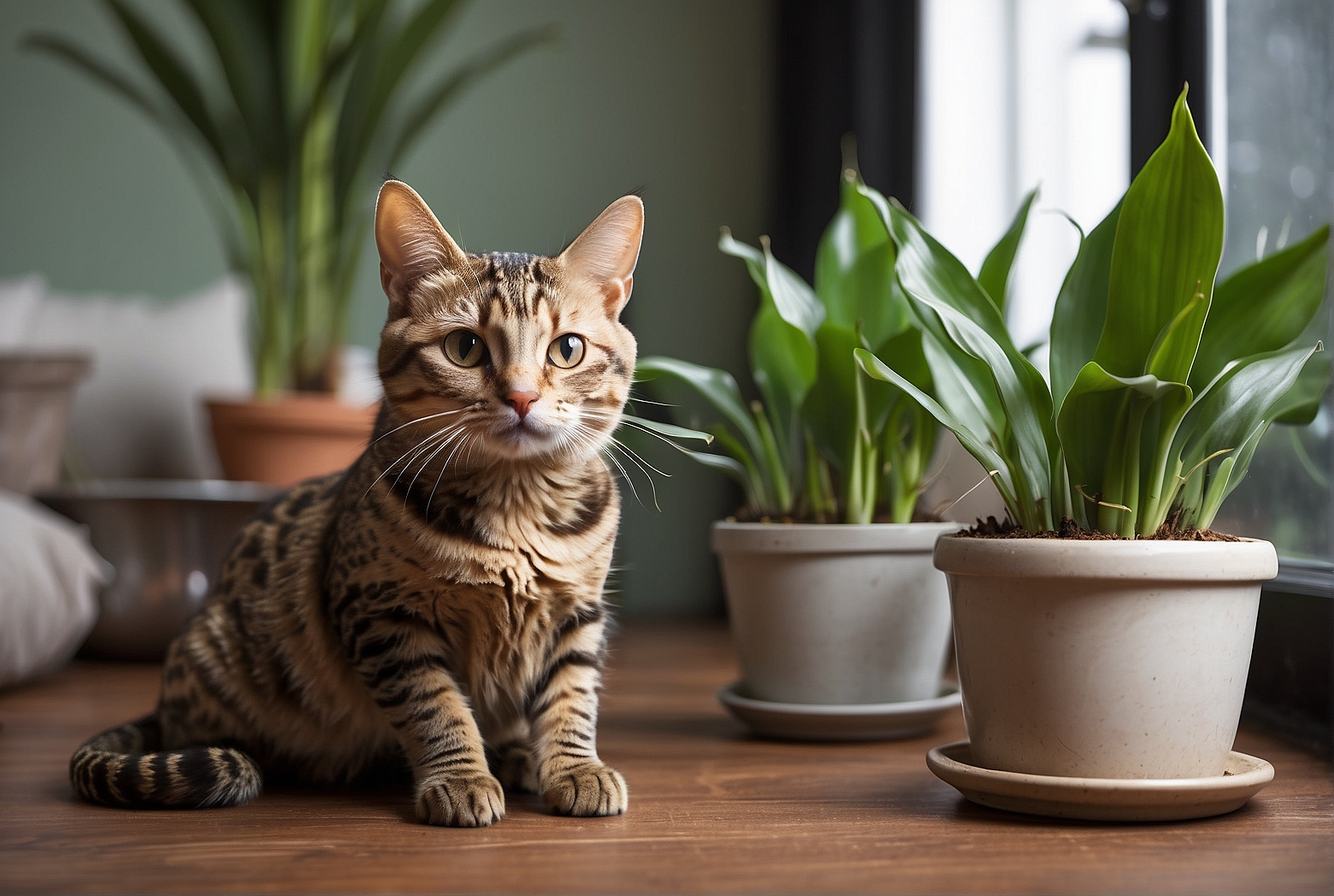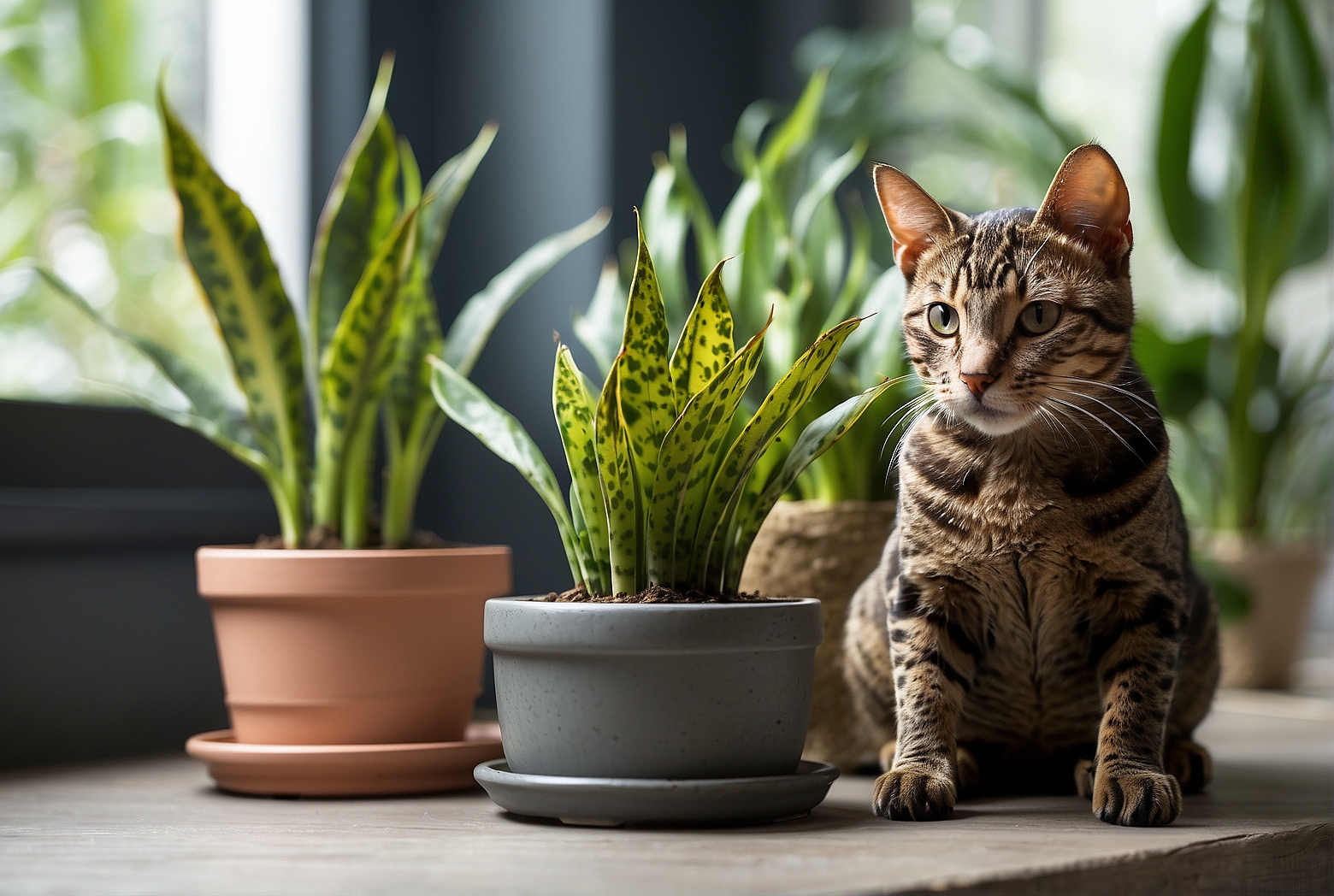Last Updated on April 16, 2024 by Tony Manhart
If you’re a pet owner and have been considering adding some greenery to your home, you may have come across snake plants as a popular option. But before bringing any plant into your pet-friendly space, it’s essential to ensure their safety. In this article, we’ll explore whether snake plants are safe for pets, shedding light on potential risks and offering guidance to ensure a harmonious environment for both your beloved pets and your leafy companions. So, let’s get started and discover whether snake plants are truly pet-friendly.
Introduction
Welcome to this comprehensive article on snake plants and their potential toxicity risks to pets. If you’re a proud pet owner who also loves indoor plants, it’s important to understand whether snake plants are safe to have around your furry friends. In this article, we will explore the various aspects of snake plants, including their description, common names, benefits, toxicity risks, pet safety precautions, alternative plant options, and the expert opinions of veterinarians, botanists, and real-life case studies. By the end of this article, you will have a better understanding of whether snake plants are suitable for your home and beloved pets.
What are Snake Plants?
Description
Snake plants, also known as Sansevieria or Mother-in-law’s Tongue, are a popular choice among plant enthusiasts and indoor gardeners. These plants have long, sword-shaped leaves that stand upright, resembling the patterns often seen on snakeskin. They are native to tropical regions and are widely appreciated for their unique appearance and easy-care nature.
Common Names
Apart from Sansevieria and Mother-in-law’s Tongue, snake plants also go by various common names, such as Viper’s Bowstring Hemp, Good Luck Plant, and St. George’s Sword. These names reflect the plant’s distinctive features and the cultural significance attached to it.

Benefits
Snake plants offer numerous benefits that make them a popular choice for both aesthetics and overall well-being. These plants have been scientifically proven to purify the air by removing toxins and releasing oxygen, making them excellent natural air purifiers. They are also low-maintenance, requiring minimal watering and care. Additionally, snake plants add an excellent touch of greenery to any indoor space, enhancing its aesthetic appeal.
Toxicity Risks
While snake plants possess various beneficial qualities, it is essential to consider their potential toxicity risks to pets. The following are the main concerns related to their toxicity:
Saponins
Snake plants contain saponins, a natural compound found in many plants. Although saponins are generally not highly toxic, they can cause gastrointestinal upset if ingested in large quantities. It is important to note that the toxicity level of saponins varies between plant species and individual animals.
Calcium Oxalate Crystals
Another potential toxicity risk lies in the presence of calcium oxalate crystals in snake plants. These crystals can irritate the oral cavity, throat, and gastrointestinal tract if chewed or swallowed. The severity of symptoms may vary depending on the amount ingested and the sensitivity of the animal.

Clinical Signs of Toxicity
If a pet ingests a significant amount of snake plant material, they may exhibit clinical signs of toxicity. These signs can include drooling, pawing at the mouth, vomiting, diarrhea, lethargy, and in rare cases, difficulty breathing or swelling of the oral cavity.
Severity of Toxicity
It is important to note that the severity of toxicity in pets can vary and is influenced by several factors, including the amount ingested, the size of the pet, and their overall health. While some animals may only experience mild gastrointestinal upset, others may develop more severe symptoms requiring immediate medical attention.
Pet Safety Precautions
To ensure the safety of your pets when having snake plants in your home, it is essential to take the following precautions:
Preventing Pet Exposure
To minimize the risk of toxicity, it is advisable to keep snake plants out of reach of curious pets, such as cats and dogs. Consider placing them on high shelves or using plant stands to elevate them from ground level. Additionally, you may choose to keep your pets confined to areas where snake plants are not present.
Symptoms to Watch Out For
As a responsible pet owner, it is crucial to familiarize yourself with the common symptoms of snake plant toxicity. If you notice any signs of drooling, vomiting, diarrhea, or behavioral changes in your pet, immediately consider the possibility of plant ingestion and seek veterinary advice.
Immediate Actions for Suspected Exposure
If you suspect your pet has ingested snake plant material, it is recommended to contact your veterinarian for guidance. They may instruct you to induce vomiting, administer activated charcoal, or monitor your pet for further symptoms. Remember to provide your veterinarian with accurate information on the plant species and the extent of exposure to guide their assessment and treatment plan.
Snake Plant Alternatives
If you’re concerned about the potential risks of having snake plants in your home, there are a variety of non-toxic plant options and low-maintenance alternatives to consider:
Non-toxic Plant Options
Several indoor plants are considered pet-friendly and do not pose significant risks of toxicity to animals. Some examples include Boston Ferns, African Violets, Spider Plants, and Areca Palms. These plants provide a touch of greenery to your home while also ensuring the safety of your furry friends.
Low Maintenance Alternatives
If you appreciate the benefits of snake plants but prefer a pet-safe alternative, you might consider plants such as Cast Iron Plants, ZZ Plants, and Peace Lilies. These plants share qualities similar to snake plants, such as air-purifying abilities and low maintenance requirements, while being generally considered non-toxic to pets.
Benefits of Snake Plants
Despite the potential toxicity risks to pets, snake plants continue to be popular choices for indoor gardening due to their notable benefits:
Air Purification
One of the most significant advantages of snake plants is their ability to purify the air. They have been shown to effectively filter harmful toxins, such as formaldehyde, benzene, and xylene, which can be present in indoor environments. By removing these pollutants, snake plants can contribute to a healthier and cleaner living space.
Low Maintenance
For pet owners who may not have much time or expertise in plant care, snake plants offer a perfect solution. These plants are incredibly low maintenance and can thrive in a wide range of conditions. They require minimal watering, can tolerate low light levels, and are generally resistant to pests and diseases.
Aesthetic Appeal
Snake plants are visually attractive, with their vertical, sword-like leaves and unique patterns. They add a touch of elegance and greenery to any indoor space, enhancing the overall aesthetic appeal. Whether you prefer a modern, minimalist look or a more natural and organic atmosphere, snake plants can complement various interior design styles.
Assessing Pet Risk Factors
When determining whether snake plants are suitable for your home and pets, it is essential to consider the following risk factors:
Curiosity and Gnawing Behavior
Some pets, such as cats and puppies, are more prone to curiosity and may be inclined to explore and chew on plants. If you have pets with such behavior, it is especially important to take precautions and closely monitor their interactions with snake plants.
Pet Species and Sensitivity
While snake plants may present minimal risk to certain pet species, others may be more sensitive to potential toxicity. For example, cats are generally more susceptible to plant toxicities compared to dogs. If you have multiple pets of different species, it is crucial to evaluate each animal’s individual risk factors.
Existing Health Conditions
Pets with pre-existing health conditions, weakened immune systems, or compromised gastrointestinal function may be at a higher risk of experiencing severe toxicity symptoms if exposed to snake plants. It is advisable to consult with your veterinarian to assess the potential risks based on your pet’s health status and medical history.
Expert Opinions
To provide a well-rounded perspective on the topic of snake plants and pet safety, let’s delve into the expert opinions of veterinarians, botanists, and real-life case studies:
Veterinarian Recommendations
Veterinarians generally recommend erring on the side of caution when it comes to choosing plants that pose potential toxicity risks to pets. While snake plants are not typically reported as highly toxic, it is advised to consider pet-safe alternatives to minimize any potential risks to your furry friends.
Botanist Insights
Botanists acknowledge the potential toxicity risks of snake plants but also emphasize that toxic reactions can vary among individual animals. They recommend practicing proper pet safety precautions and monitoring for any signs of plant ingestion.
Case Studies
Real-life case studies have highlighted instances where pets have exhibited mild to moderate symptoms of toxicity after ingesting snake plant material. These cases further emphasize the importance of being aware of the potential risks and taking preventive measures to ensure the well-being of our pets.
Conclusion
In conclusion, snake plants offer a unique blend of visual appeal, air purification benefits, and low maintenance requirements. However, their potential toxicity risks to pets cannot be overlooked. While snake plants are generally considered to have low toxicity levels, it is critical to assess the risk factors specific to your pets and take necessary precautions to prevent exposure. If you have pets prone to curiosity or pets with certain health conditions, it may be more advisable to opt for non-toxic plant options or low maintenance alternatives. Always consult with your veterinarian for personalized advice and stay vigilant for any signs of plant ingestion. By balancing the aesthetics of your home with the safety of your pets, you can create a harmonious environment that benefits both you and your furry companions.
Tony Manhart is a passionate gardener who has been tending to gardens for over 20 years. He takes pride in creating beautiful outdoor spaces with plants, trees, and shrubs that can thrive in any environment. He loves to share his knowledge with others and has taught classes on gardening basics and advanced techniques. He is committed to sustainability, using natural and organic methods to create and maintain gardens. He also works with local organizations to create green spaces for communities. When he’s not gardening, Tony enjoys hiking, reading, and spending time with his family.


